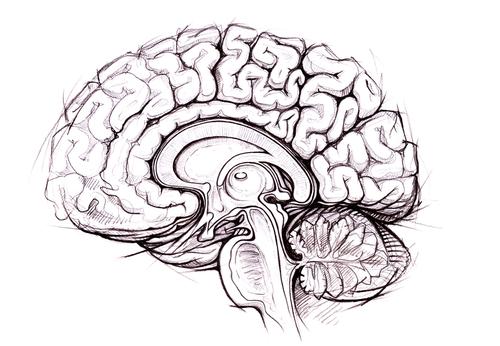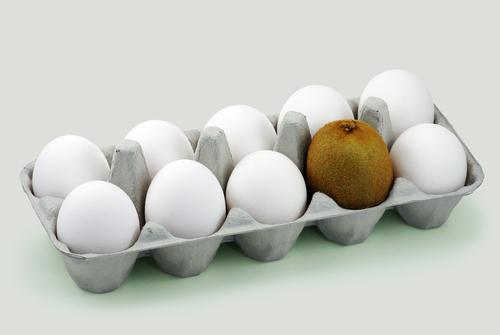Surprising Science
All Stories
Scientific research increasingly throws doubt on the question of free will. If it doesn’t exist, or if it is extremely limited, what would it mean for the New Year’s resolutions you may be making?
A new model of how the brain works, using special glia cells to regulate the synapses, sorting information for learning purposes, could give rise to better computer algorithms.
The fundamental source of prejudice is not ideology, but rather a basic human need and way of thinking, says a new study. To reduce prejudice we must first recognize the role it plays in our daily lives.
A week after being admitted to the hospital with a fever, a Chinese man in the southern Guangdong province has died from a bird flu infection caused by the dangerous H5N1 virus.
We know New Year’s isn’t the only time people drink but to clear the confusion around so many home remedies, here is a list of foods, drinks and minerals to incorporate into tomorrow’s brunch.
The state of Texas has created a $3 billion fund to pay for a new cancer research initiative. By building on the International Cancer Genome Consortium, it aims to cure five kinds of cancer.
Increasing demand for year-round, out-of-season organic food has shifted production to Mexico where large farms produce monocultures, depleting local soil and water resources.
Though marketed as a miracle health product, the benefits of antioxidants have been greatly overestimated, say researchers. In some cases, they have been shown to aggravate health problems.
A former Apple engineer who launched his own wireless networking start up puts his customers in direct contact with his engineers. Running a lean business keeps him competitive.
Carbon nanotubes have been in the research phase for a decade. Will they ever break out and benefit society at large? Engineers continue looking for a way to scale their production.
An astrophysicist and an economist have created a calendar in which each new 12-month period is identical to the one which came before, and remains that way from one year to the next in perpetuity.
Out of the Slow Food movement, which eschews convenience-oriented fast foods, comes Slow Money: A market-based approach to improving the economy through local investment.
The era of making big bucks from TV sets has gone. They are now so cheap that the profits have all but been eroded, partly due to oversupply caused by increased manufacturing.
Augmented reality will be mainstream, digital assistants will guide our every move, everything will be translated on the fly, we’ll use digital scrolls. What else will 2025 bring?
Using computerized machine learning and complex algorithms, UCLA neuroscientists are making advances in ‘brain reading’ where computers can decode our brain to understand our thoughts.
When depressed individuals were placed in an fMRI scan and shown photos of their mother, their reactions were much stronger than healthy people. The technique could aid in diagnosis.
After a series of failures in the drug industry to slow or stop the inexorable decline of Alzheimer’s patients, doctors are now looking to the computer industry for new alternatives.
A California man who operates his own sperm donation program by contacting infertile couples on the Web has been told to stop by the FDA because of infrequent STD testing.
US officials have asked the nation’s premier scientific journals not to publish new research that discusses how the H5N1 bird flu virus was engineered to carry from human to human.
Has the Internet elevated political conversation by increasing interaction between average citizens? Or is it plunging the country into an abyss of partisanship and ignorance?
The 3D printing process has caught on slowly among manufacturers but recent gains show promise. Companies like GE are using 3D printers to make highly-refined machine parts.
In Europe, pedestrians avoid running into each other by stepping to the right. In Asia, people step to the left. What accounts for these differences and how can crowd science be used to improve cities?
Microsoft co-creator Paul Allen wants to make an airplane that can launch satellites and perhaps manned crews. Is the engineering feasible or is this the next Spruce Goose?
A team of scientists has discovered how to change plant biology to make crops more resistant to droughts. Increased food production and adaptation to climate change could result.
Scientists have found a fascinating pattern: children better at combining sights and sounds tend to score higher on intelligence tests. Ability to compute conflicting information is key.
Freelance writer and editor Molly Oswaks on how first cocaine and later an ADD diagnosis and medication gave her clarity and attention consistency after a life mostly spent adrift.
A systematic review has shown that psychological interventions to prevent depression in children and adolescents have protective effects that last for up to a year.
A new procedure that involves inserting electrodes into the brain shows promise in reducing seizures for people with epilepsy, thereby improving their quality of life.
In a watershed moment for chimpanzee research, the US Institute of Medicine says “most current use of chimpanzees for biomedical research is unnecessary.”
A recent two-year trial of telehealth technology for monitoring people who are chronically ill found it works particularly well for people with conditions like diabetes and heart failure.





























